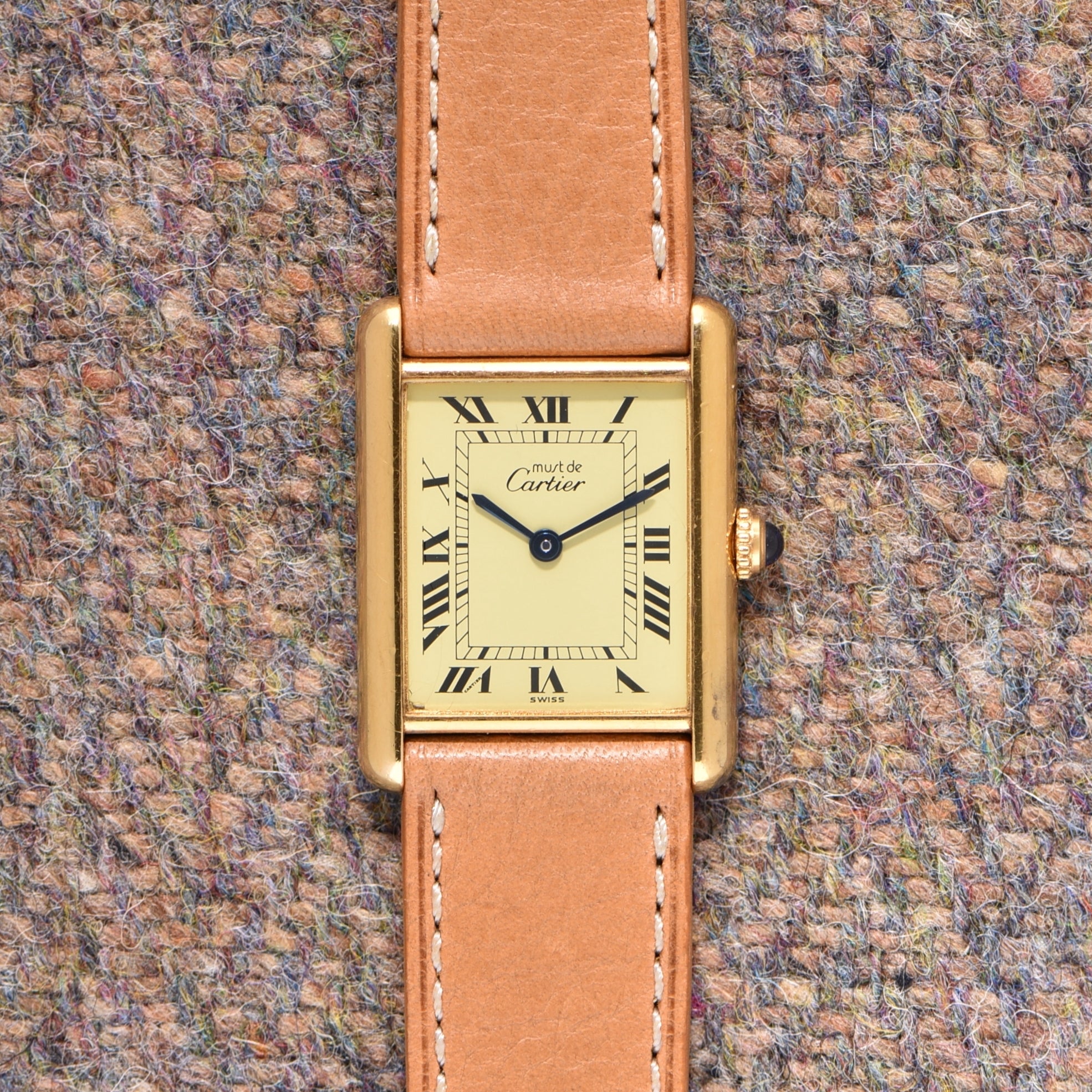
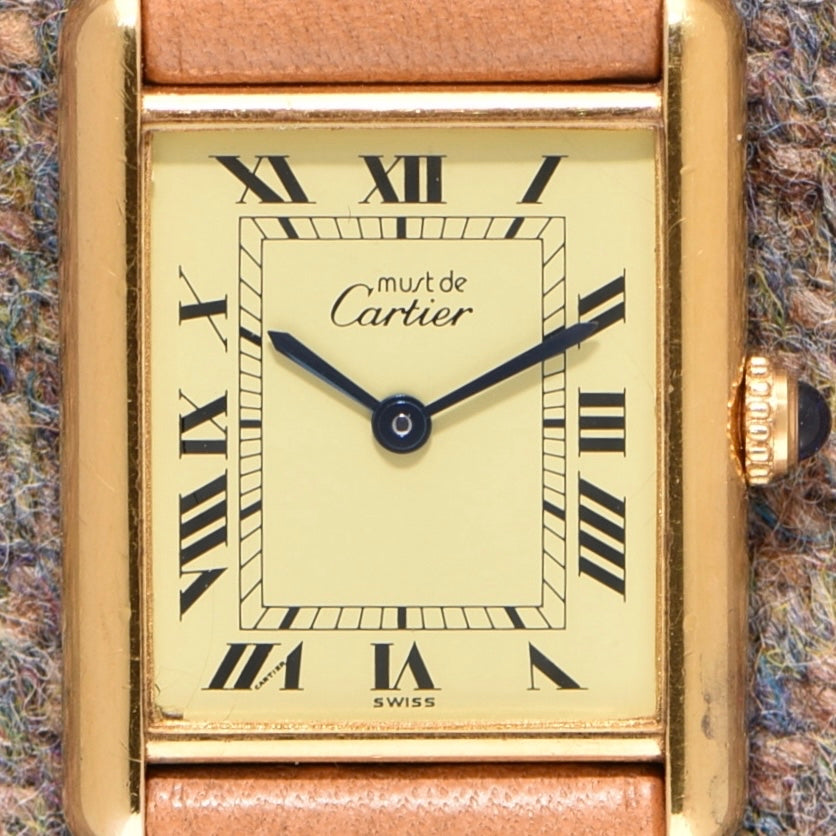
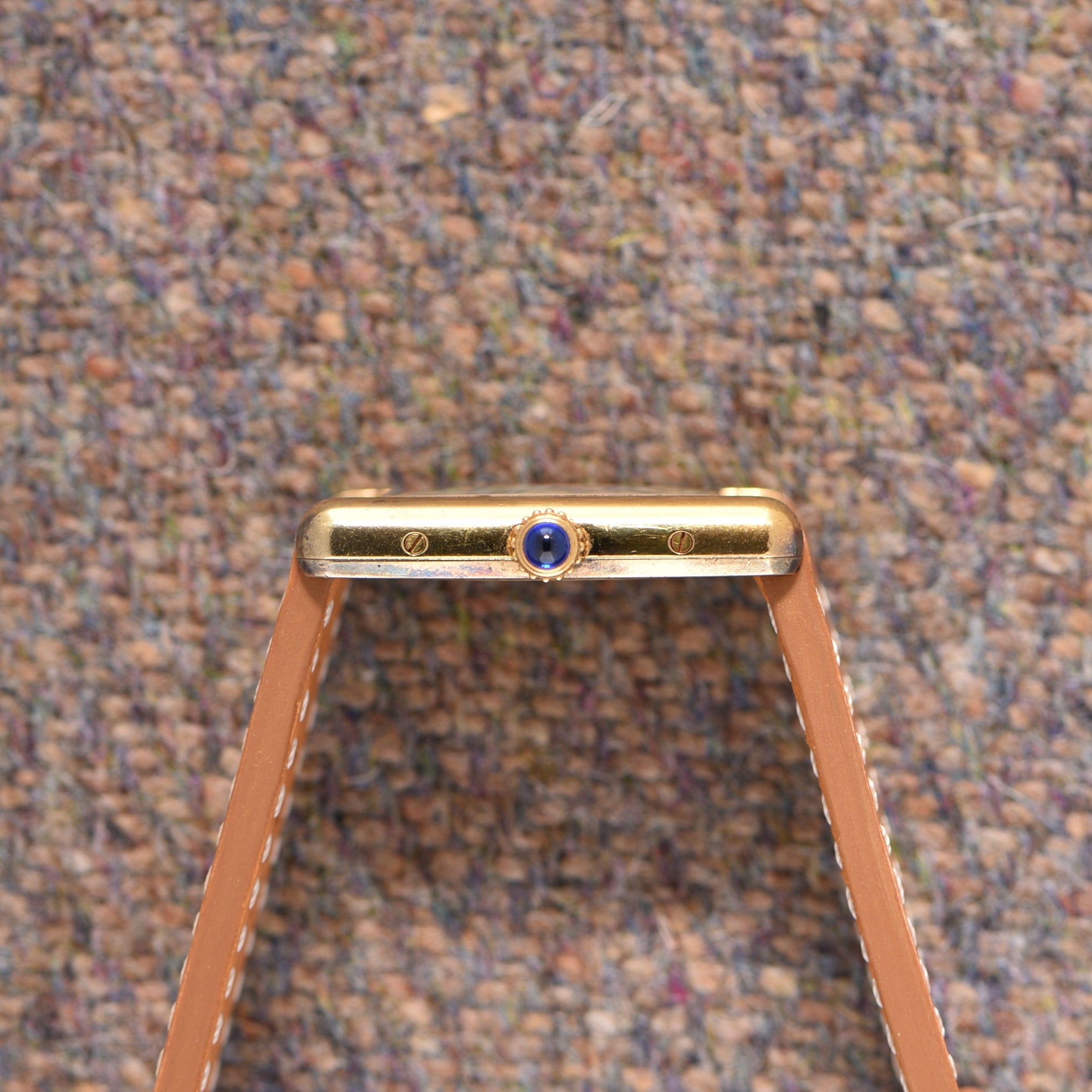
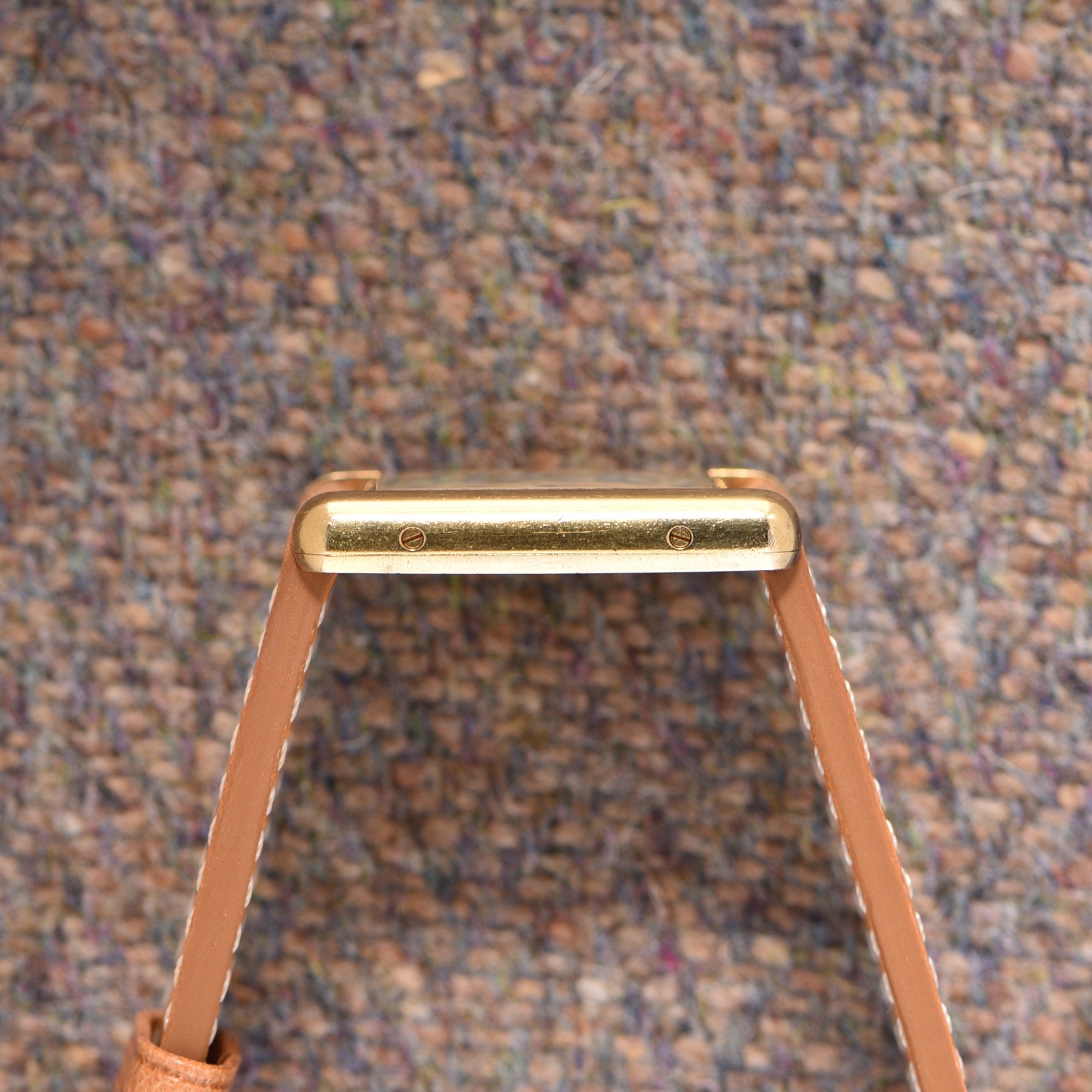
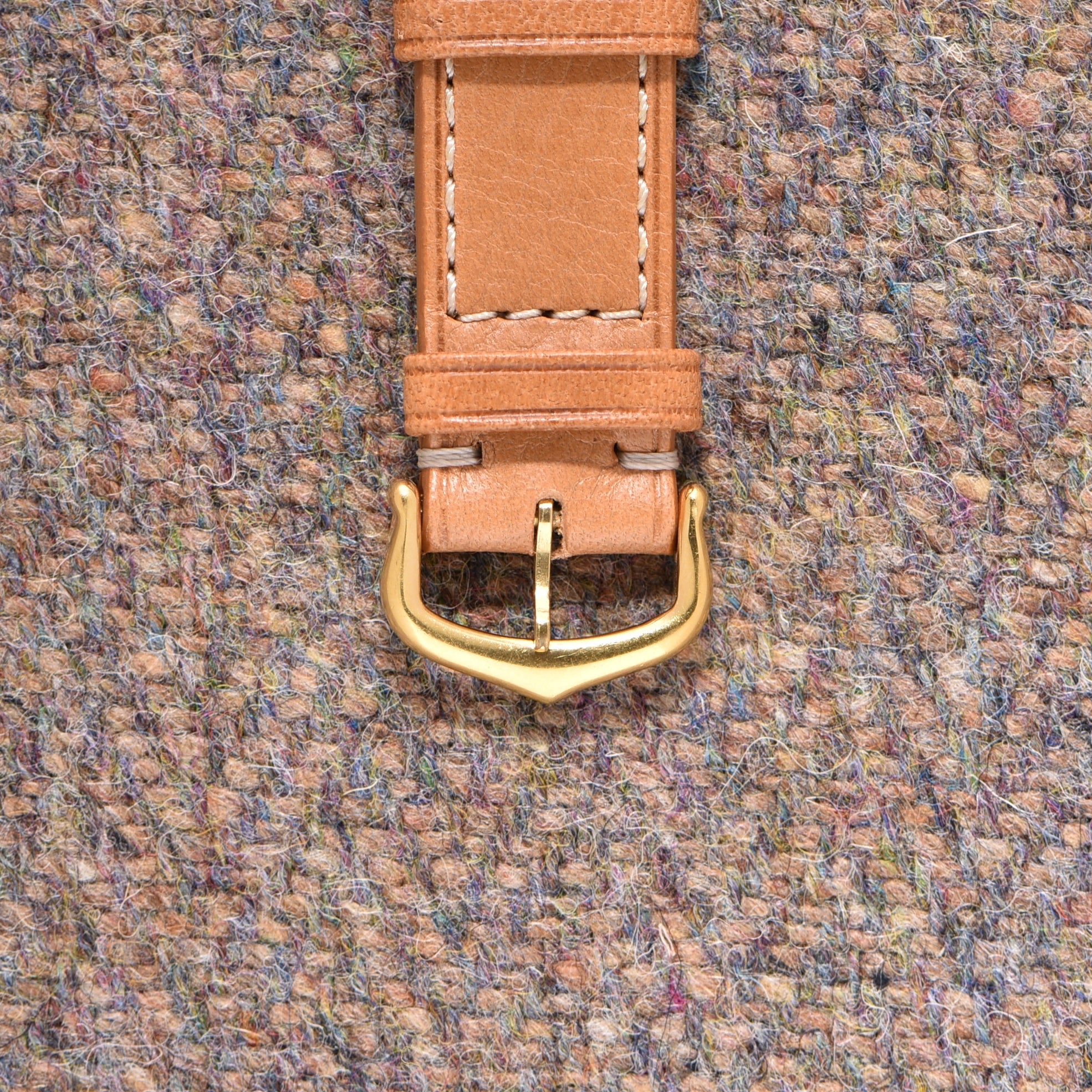
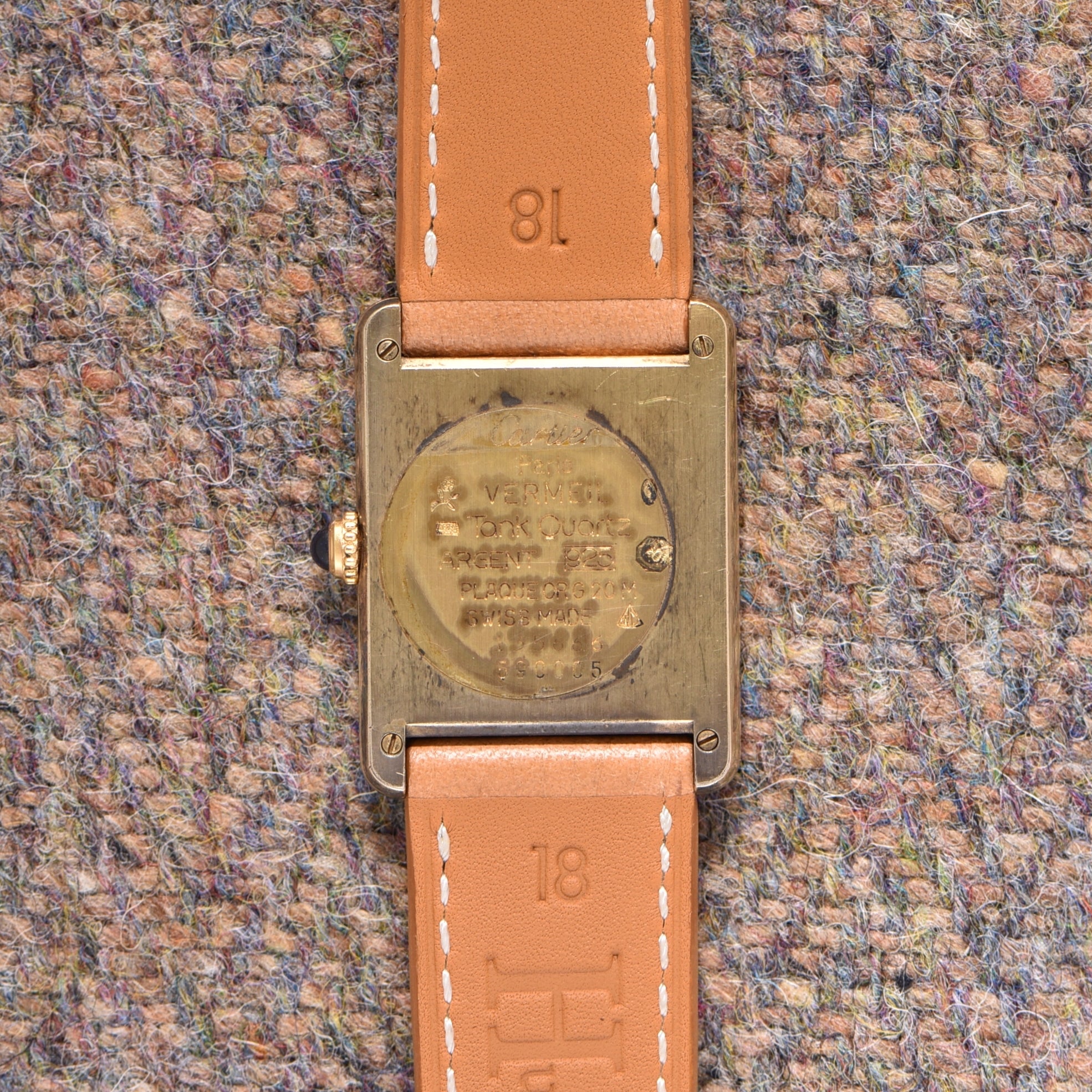
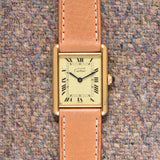
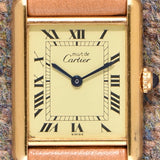
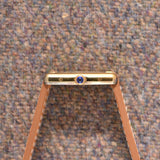

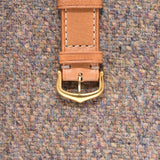
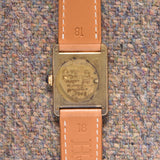
Cartier Must De Tank Roman
- Reference 590005
- Watch Only, Original Buckle
- Wire Price $1800
- Specifications
- The Story
- The Brand
Year: Circa 1990s
Model: Must De Cartier Tank
Case Diameter: 23mm
Lug to Lug: 30mm
Case: Gold Plated Sterling Silver
Condition: No significant wear as seen
Dial: Lemon/Ivory
Movement: Quartz
Condition
The case has zero plate wear with some oxidization on the gold. The crystal is clear with a clean lacquer dial that has light spidering and the most wear is noticeable in the bottom left corner. All around this is an honest example.
The Must de Cartier line, created by Robert Hocq and Alain-Dominique Perrin, aimed to attract new customers by offering accessories and leather goods with the essence of Cartier. The Must de Cartier Tank wristwatch was the brand's most iconic item, made from sterling silver with a minimum of 10k plating at 2.5 microns thick. Launched in 1976, the line marked key milestones for the brand, including being the first non-precious metal watch and the first mass-produced watch. The brand produced around 3000 watches per year before the Must line, and by the end of the 70s, they were producing over 160,000 watches per year. The dials varied, with faux-stone dials resembling onyx and lapis, lacquer dials in wood and tortoiseshell, and the Trinity dial featuring five stripes in a center section in yellow, white, and rose gold. The Trinity dial was a favorite among fans.
A design that has stayed true to what it started out to be. The Cartier tank deserves to be in every watch collection. Its size might be smaller than most watches, but that doesn't mean it doesn't look great on the wrist. The ivory-roman dial example is the go-to for many because its the closest dial configuration to the original Tank Louis.
Cartier, a luxury watch brand, has been synonymous with elegance, innovation, and timeless appeal since its inception in 1847. The brand's early creations, including the Cartier Santos and Cartier Tank, were an embodiment of aesthetic innovation and mechanical mastery, merging the finesse of jewelry with the functionality of timekeeping. As the brand grew, so did the family's involvement, as the children and grandchildren of Louis-François Cartier expanded the business and opened boutiques in various cosmopolitan cities.
The turn of the 20th century marked a revolutionary phase for Cartier, with the introduction of the Cartier Santos, which was designed for the famous aviator Alberto Santos-Dumont and became one of the first wristwatches designed explicitly for men. The Cartier Tank watch, inspired by the geometric design of military tanks, was a symbol of modernity and minimalistic elegance. The uniquely shaped Cartier Tonneau broke away from conventional circular designs, demonstrating Cartier's commitment to artistic creativity and mechanical excellence.
Cartier's success in the early 20th century was not limited to its pioneering designs; it also saw an era of global expansion that cemented its status as an international symbol of luxury and prestige. By 1902, Cartier opened its doors in London, positioning the brand within one of the world's major cultural and financial hubs. In 1909, Cartier opened its New York boutique, tapping into the vibrant American market.
Through strategic collaborations with local artisans, careful selection of materials, and a deep understanding of regional tastes, Cartier transformed from a Parisian marvel into an international sensation. The Cartier watch became more than a French luxury; it became a global emblem of style and refinement, transcending geographical boundaries to become a timeless classic. This era of expansion validated Cartier's enduring appeal, demonstrating that true luxury, as epitomized by Cartier's watches, knows no borders and speaks a universal language of elegance and excellence.
Cartier Must De Tank Roman
Authenticity Guaranteed
All our watches are carefully inspected to insure and guarantee the authenticity.
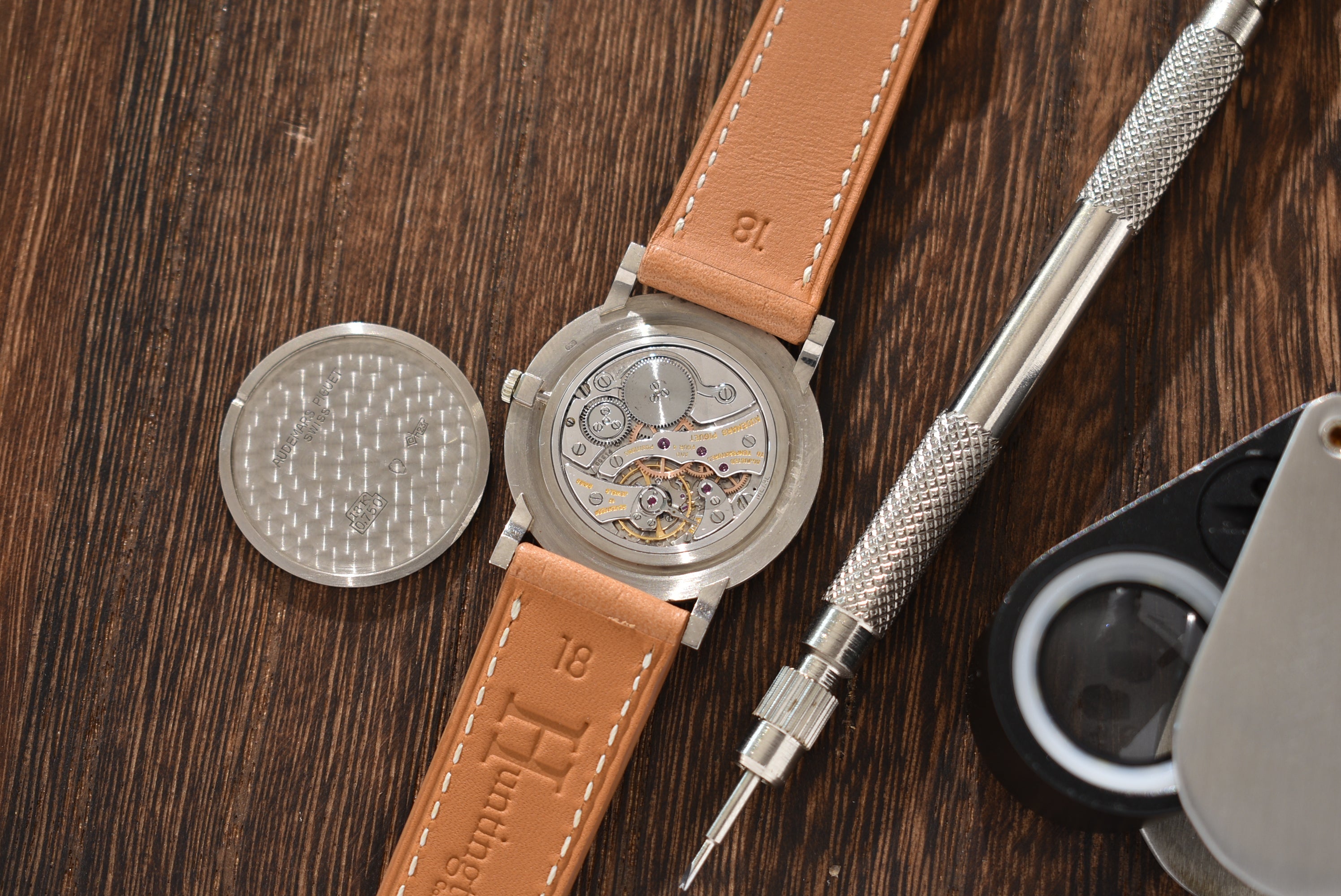
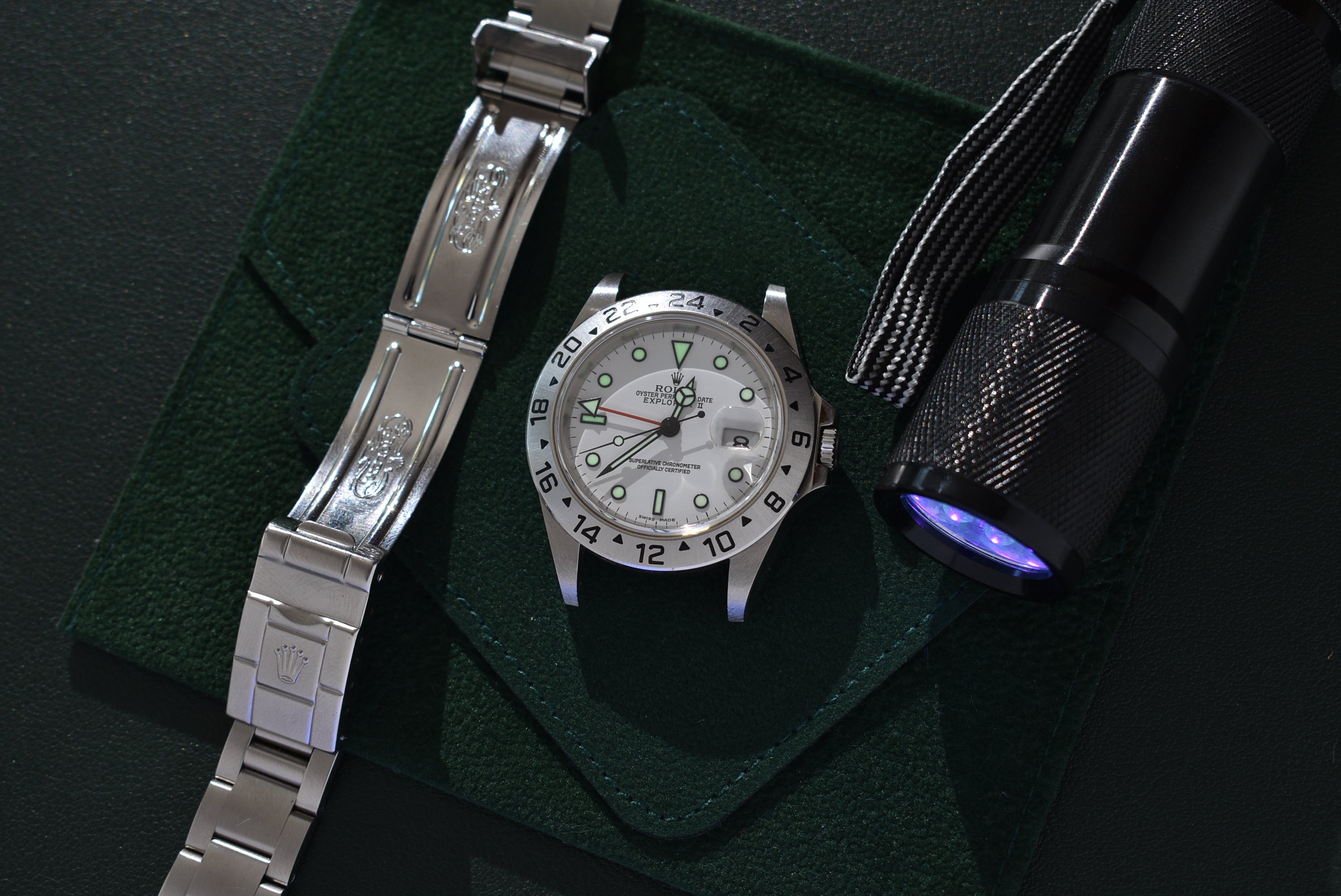
The Details
All our watches are scrutinized during inspection to make sure our descriptions are as accurate as possible.
- Related products
- Recently viewed
